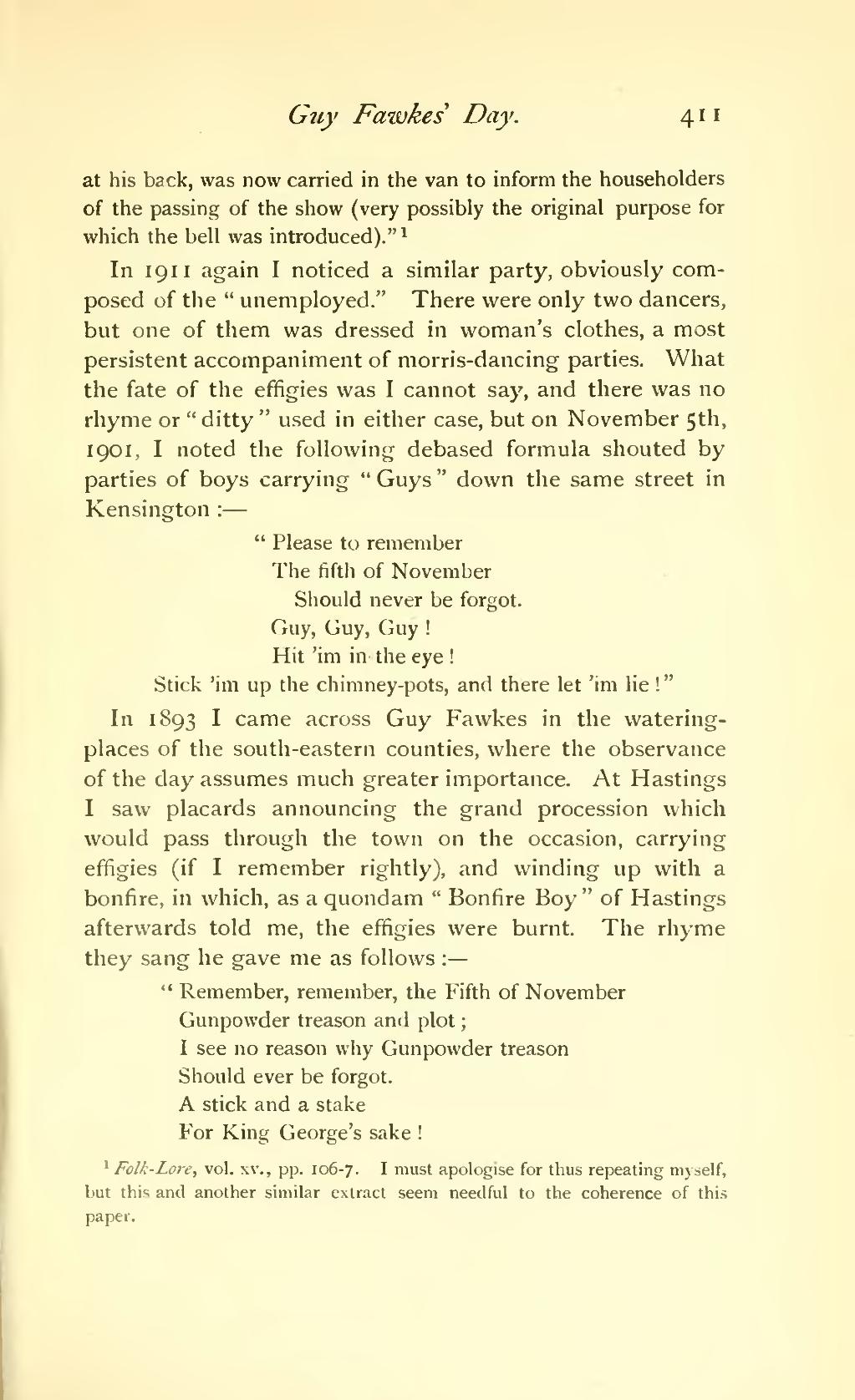at his back, was now carried in the van to inform the householders of the passing of the show (very possibly the original purpose for which the bell was introduced)."[1]
In 1911 again I noticed a similar party, obviously composed of the "unemployed." There were only two dancers, but one of them was dressed in woman's clothes, a most persistent accompaniment of morris-dancing parties. What the fate of the effigies was I cannot say, and there was no rhyme or "ditty" used in either case, but on November 5th, 1901, I noted the following debased formula shouted by parties of boys carrying "Guys" down the same street in Kensington:—
"Please to remember
The fifth of November
Should never be forgot.
Guy, Guy, Guy!
Hit 'im iu' the eye!
Stick 'im up the chimney-pots, and there let 'im lie!"
In 1893 I came across Guy Fawkes in the watering-places of the south-eastern counties, where the observance of the day assumes much greater importance. At Hastings I saw placards announcing the grand procession which would pass through the town on the occasion, carrying effigies (if I remember rightly), and winding up with a bonfire, in which, as a quondam "Bonfire Boy" of Hastings afterwards told me, the effigies were burnt. The rhyme they sang he gave me as follows:—
"Remember, remember, the Fifth of November
Gunpowder treason and plot;
I see no reason why Gunpowder treason
Should ever be forgot.
A stick and a stake
For King George's sake!
- ↑ Folk-Lore, vol. xv., pp. 106-7. I must apologise for thus repeating myself, but this and another similar extract seem needful to the coherence of this paper.
